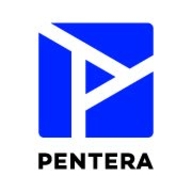

Veracode and Pentera compete in the cybersecurity field, offering a range of security testing solutions. Veracode has a slight edge due to its comprehensive integration capabilities and cloud-based flexibility.
Features: Veracode offers a comprehensive static and dynamic code analysis for multiple programming languages. It integrates SAST, DAST, and Greenlight to support secure DevOps cycles. Its cloud-based deployment allows for seamless code assessment and automatic security updates. Pentera focuses on continuous automated vulnerability assessment, emphasizing credential and vulnerability management. Its simulation of attack scenarios reveals real-time vulnerabilities, with real-world exploitability demonstrations.
Room for Improvement: Veracode needs to reduce false positives and simplify its interface for better usability. Enhancements in support for modern languages like Ruby could also be beneficial. Pentera requires improvements in dashboards for clearer reporting and scalability for smaller networks. It also needs transparency in handling compromised credentials and virtual patching capabilities.
Ease of Deployment and Customer Service: Veracode provides flexible deployment across private, public, and hybrid clouds, backed by highly rated technical support. Pentera primarily employs an on-premises or hybrid cloud approach, offering reliable support but facing issues with feature licensing clarity.
Pricing and ROI: Veracode's pricing is considered expensive and more suitable for larger enterprises. Its ROI is driven by comprehensive security features improving developer efficiency. Pentera is generally more affordable, appealing to companies requiring automated penetration testing, despite high costs for some features.


Pentera is the category leader for Automated Security Validation, allowing every organization to evaluate its security readiness, to know its real security risk at any given moment. Test all cybersecurity layers across the attack surface – inside and out – by safely emulating attacks & prioritize patching with a risk-based remediation roadmap.
Thousands of security professionals and service providers around the world use Pentera to guide remediation and close security gaps before they are exploited. For more info visit: pentera.io
Veracode is a leading provider of application security solutions, offering tools to identify, mitigate, and prevent vulnerabilities across the software development lifecycle. Its cloud-based platform integrates security into DevOps workflows, helping organizations ensure that their code remains secure and compliant with industry standards.
Veracode supports multiple application security testing types, including static analysis (SAST), dynamic analysis (DAST), software composition analysis (SCA), and manual penetration testing. These tools are designed to help developers detect vulnerabilities early in development while maintaining speed in deployment. Veracode also emphasizes scalability, offering features for enterprises that manage a large number of applications across different teams. Its robust reporting and analytics capabilities allow organizations to continuously monitor their security posture and track progress toward remediation.
What are the key features of Veracode?
What benefits should users consider in Veracode reviews?
Veracode is widely adopted in industries like finance, healthcare, and government, where compliance and security are critical. It helps these organizations maintain strict security standards while enabling rapid development through its integration with Agile and DevOps methodologies.
Veracode helps businesses secure their applications efficiently, ensuring they can deliver safe and compliant software at scale.
We monitor all Penetration Testing Services reviews to prevent fraudulent reviews and keep review quality high. We do not post reviews by company employees or direct competitors. We validate each review for authenticity via cross-reference with LinkedIn, and personal follow-up with the reviewer when necessary.